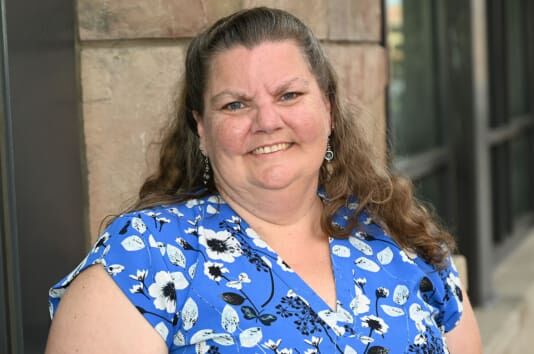Nicolais: Senate candidate Keyser’s day in court

Jon Keyser’s failure to collect enough petition signatures to make June’s Republican primary ballot is the big story of Colorado politicos right now. Coming up 86 signatures short, Keyser’s U.S. Senate campaign finds itself in mortal peril. The campaign will now go before a Denver District Court to plead its case.
Depending on why signatures were rejected, it could be an uphill battle.
In 2012, I represented Eric Weissmann, the last federal candidate to successfully challenge an insufficiency ruling from the Colorado secretary of state. After the secretary ruled Weissmann came up 158 signatures short, we filed a petition for review. That is what Keyser must do in the next few days.
The key question will be whether signatures were rejected on a line-by-line basis or as part of a rejected petition section.
When candidates access the ballot via petition, the secretary of state requires a very specific form to be used. The form includes individual “lines” with identifying information for each elector signing the petition. The secretary reviews each line carefully to make sure all the information matches voter rolls. When there is a discrepancy or incomplete information, a signature line is rejected.
For the sake of efficiency, petitions are divided into “sections.” Each section is four pages long, stapled along the top edge, and comprised of multiple lines — usually 25 — plus the required warnings, disclosures and a circulator affidavit at the end. Consequently, a circulator can gather multiple signatures per petition section.
Errors in petition sections invalidate the entire section, including every signature line on it. Up to 25 otherwise valid signatures can be voided by one error in the petition section. Such errors can range from disassembly of the petition section (where the staples along the top have been removed) to a missing notary seal or mismatched dates in the affidavit. While seemingly minor mistakes, the errors can have a major effect. The error can be compounded if repeated by one circulator on multiple petition sections.
Challenging or correcting such errors in petition sections will be the critical task for Keyser’s legal team.
In 2012, I convinced the court to accept otherwise valid signatures from 14 deficient petition sections affecting 262 signatures. Because a “substantial compliance” standard governs the candidate petition process, our legal team presented evidence through affidavits and testimony that the errors were not extensive, did not undermine the purpose of the statute, were not made in bad faith, and could be “cured” by the additional information we provided. Consequently, the court overturned enough rejected signatures to place Weissmann on the ballot.
The strategy only worked because we could rehabilitate signatures in bunches.
In contrast, a line-by-line review entails a long slog comparing each and every signature to the data on the secretary of state’s statewide voter registration system, known as SCORE. It is time-intensive, resource-intensive and very difficult. The people working for the secretary generally do an excellent job reviewing signatures. Finding individual errors is rare; finding enough to overcome a substantial insufficiency is next to impossible.
One unusual twist in the Weissmann case arose when the Colorado Democratic Party intervened in the lawsuit. Never before had one party engaged so directly into another party’s primary. While neither Wiessmann’s primary opponent nor the Colorado Republican Party participated, the tactic by the Democratic Party complicated the case substantially and increased the cost in financial, time and attention resources. Given its efficacy, Keyser should expect the same.
With all the other candidates anxiously awaiting the outcome, Keyser’s day in court will be the center of Colorado’s political world for the next week.













